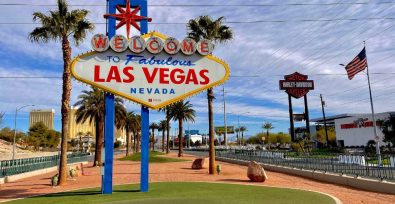Nevada has become the latest state to abolish forced labor and involuntary servitude as criminal punishments, voting on Tuesday to amend its constitution and protect incarcerated people from being compelled to work under threat of punishment. This victory reflects a growing national movement to address forced labor within U.S. prisons.
Previously, Nevada required its 10,000 or so incarcerated persons to work or participate in vocational training for 40 hours weekly unless medically exempt, with some earning as little as 35 cents per hour.
A win for the national movement against prison slavery
Nevada’s recent victory follows similar actions in Vermont, Oregon, Alabama, and Tennessee, where state constitutional changes ended exceptions for slavery and involuntary servitude in prisons.
In 2018, Colorado led the way by passing the first such amendment, but advocates stress that change hasn’t always been easy or immediate. In 2022, a group of Colorado prisoners filed a lawsuit against the state corrections department, alleging they were still being forced to work despite the constitutional amendment.
Advocates point to these ongoing challenges to underscore the need for robust enforcement and legal protections that guarantee true freedom from forced labor. Jamilia Land, co-founder of the Abolish Slavery National Network, emphasized to AP News that progress is possible but requires continued vigilance and commitment.
“The momentum we’ve built in Nevada, coupled with our achievements in seven other states, strengthens our resolve to continue this work nationwide. We are unwavering in our commitment to remove involuntary servitude from every state constitution.”
California faces setback on Proposition 6
In contrast to Nevada’s success, California’s Proposition 6, a similar measure aimed at ending prison forced labor, has seen setbacks. Despite little vocal opposition, early election results showed the measure trailing by nearly 10 percentage points.
California Assemblyman Isaac Bryan, a leading advocate, told the New York Times, “It’s disturbing to see such a clear values statement struggling due to fear-driven opposition.”
California’s Prop 6 efforts were the focus of a recent Freedom United event. Speaking about the state’s struggle to even get the measure on the ballot, panelist Jeronimo Aguilar noted,
“When the US took hold of territory, indigenous people were enslaved almost at the outset of California’s establishment. The exception clause allowed that. They were asking -how do we enforce a system of enslavement without looking like the US South with plantations? They criminalized them with targeted laws and then extracted their labor from prison… California history has never had a constitution or a society where forced labor and involuntary servitude was not part of its society…this history is very dark.”
Join the movement to end prison labor
Freedom United is proud to stand with advocates nationwide in the campaign to end forced labor in the prison system. As cosponsors of Proposition 6, we’re disappointed in what we’re seeing from California but we’re celebrating Nevada’s victory!
Join us in pressing for the U.S. to end all forms of slavery once and for all!







Freedom United is interested in hearing from our community and welcomes relevant, informed comments, advice, and insights that advance the conversation around our campaigns and advocacy. We value inclusivity and respect within our community. To be approved, your comments should be civil.
As an Australian reader … can you clarify what replaces work in this legislation. Does everybody just sit around and do what they want? That doesn’t sound particularly helpful to anybody?
Hi Gary, thanks for your question. This legislation does not stop prison labor or work, it is a vote against prison slavery. Our resource page explains the distinction in detail: https://www.freedomunited.org/prison-labor-and-modern-slavery/
Forced labor is very unproductive and will
tend to reduce the efficiency of the willing workers.